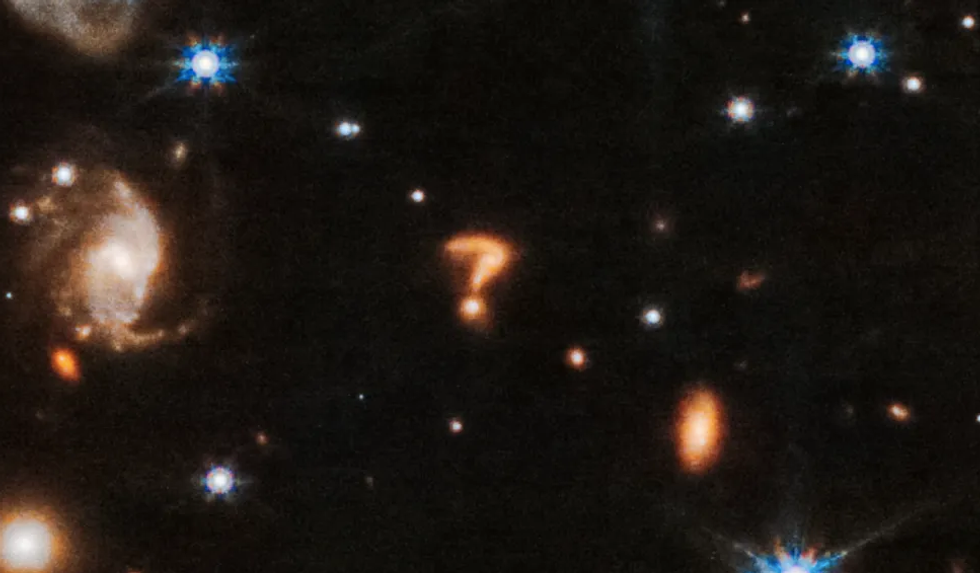Science & Tech
Alex Daniel
Aug 03, 2023
JWST Finds a Cosmic Question Mark and a Starry Fountain
Nasa’s James Webb telescope’s most recent image of a distant star system has thrown up more questions than answers – literally.
The image is of the star system Herbig Haro 46/47, and includes a cosmic object that is shaped like an actual question mark.
Scientists think the entity could be a distant galaxy, or two galaxies interacting with one another. One larger galaxy could be distorting the cosmic cloud and gas of the other, for example, forming a shape similar to a question mark.
Sign up to our free Indy100 weekly newsletter
The red colour of the unusually shaped object in the image suggests it is more distant than the other stars in the picture.
“This may be the first time we’ve seen this particular object. Additional follow-up would be required to figure out what it is with any certainty. Webb is showing us many new, distant galaxies – so there’s a lot of new science to be done,” the US’s Space Telescope Science Institute, which manages Webb’s science operations, told Space.com.

The star system in the foreground, dubbed Herbig-Haro 46/47, was captured by the Webb telescope’s powerful infrared cameras and consists of two young stars pulled to each other by gravity as they spin.
An image reveals the stars as buried deeply, appearing as an orange-white splotch, surrounded by a disk of gas and dust that continued to add to their mass.
JWST Finds a Cosmic Question Mark and a Starry Fountainwww.youtube.com
“Herbig-Haro 46/47 is an important object to study because it is relatively young – only a few thousand years old,” Nasa said in a statement.
The pair of actively forming stars have two-sided orange lobes which were created by earlier ejections from these stars. Scientists said the two young stars could give more insight into how stars gather mass over time, given the fact that the process usually takes millions of years.
Have your say in our news democracy. Click the upvote icon at the top of the page to help raise this article through the indy100 rankings.
Top 100
The Conversation (0)














